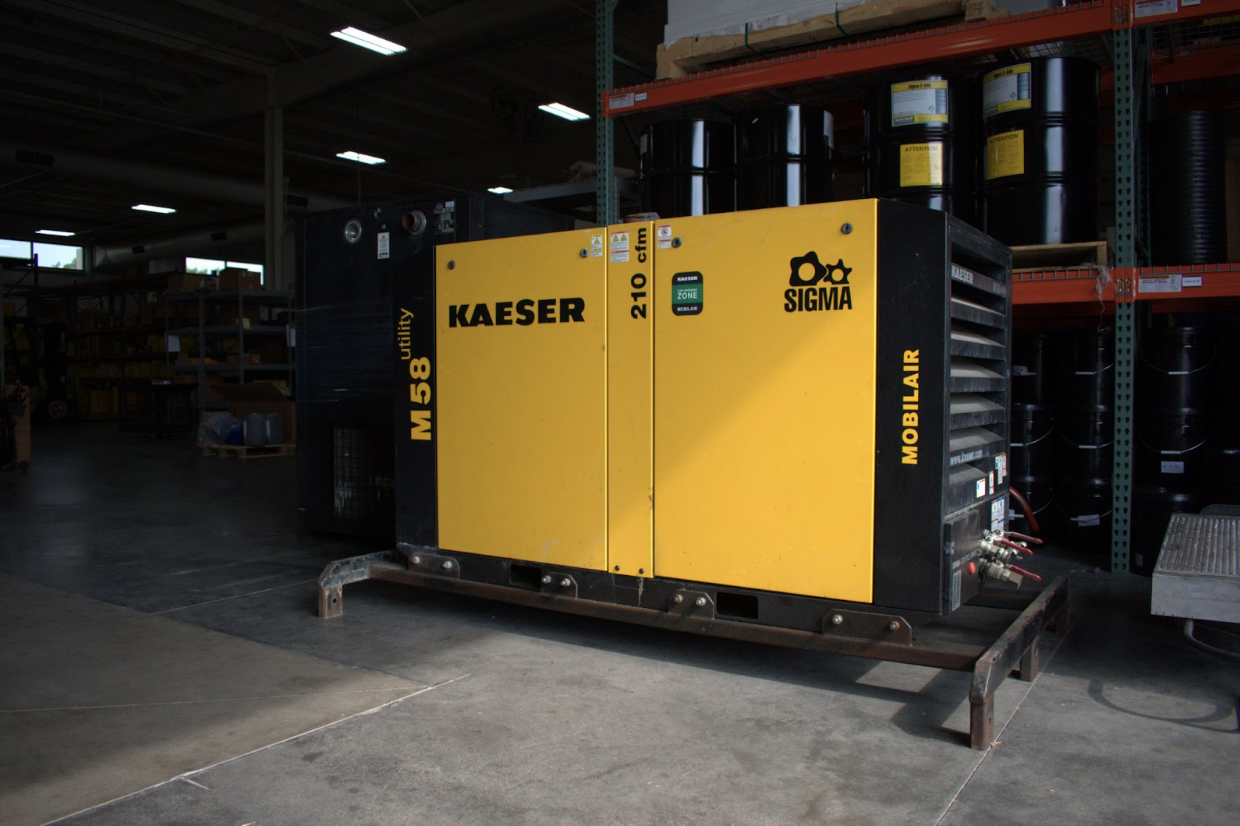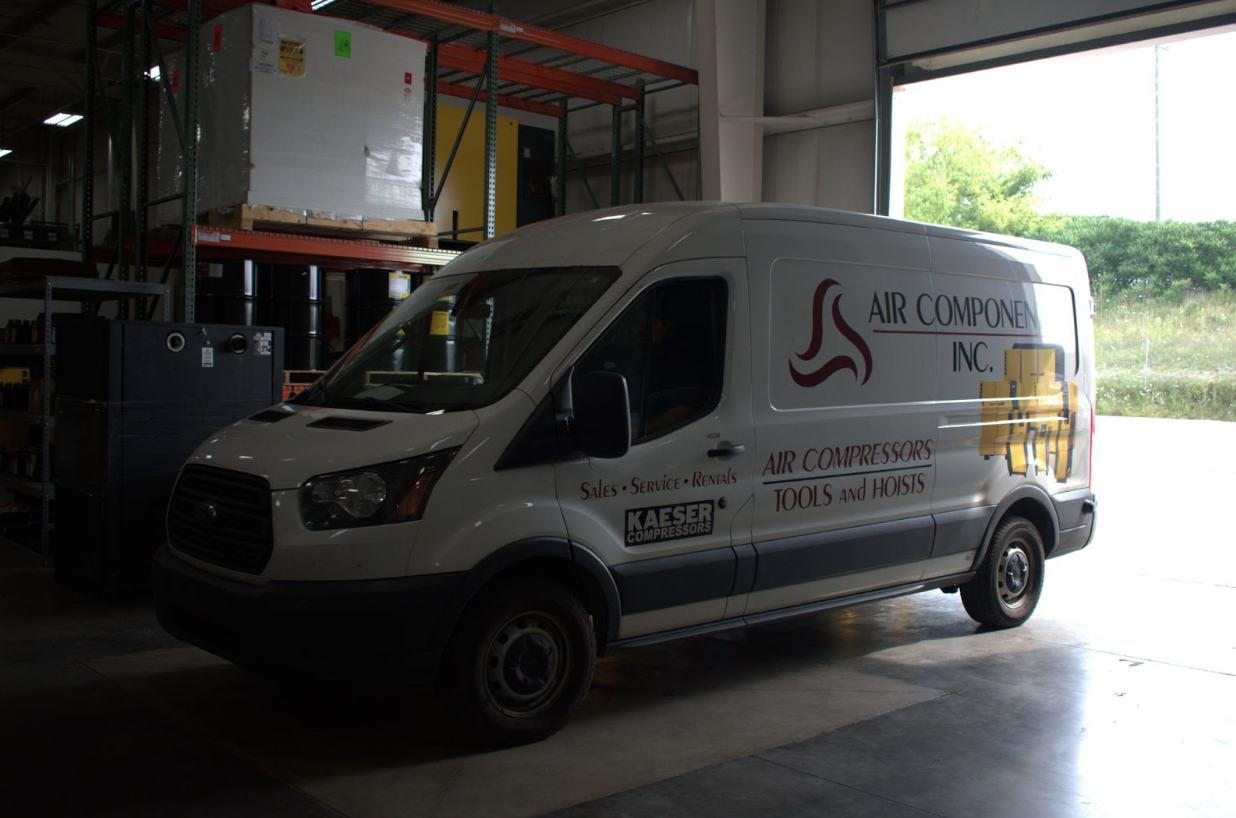
Air compressors are essential in various industries, from manufacturing and construction to healthcare and automotive services. These machines power critical tools and processes, making their reliability vital for smooth operations. Unexpected air compressor breakdowns can disrupt productivity, leading to costly downtime and potential delays. This blog will explore common causes of air compressor breakdowns, how to prepare for emergencies, immediate actions to take during a breakdown, troubleshooting tips, and strategies to prevent future issues.
Understanding Common Causes of Air Compressor Breakdowns
Typical Issues Leading to Breakdowns: Air compressors can fail due to various reasons, many of which are preventable with regular maintenance.
Electrical Problems: Electrical issues, such as faulty wiring, blown fuses, or motor failures, are common culprits. Regular inspections can help identify and address these issues before they lead to breakdowns.
Overheating: Overheating can result from inadequate ventilation, clogged filters, or excessive use. Monitoring temperature and ensuring proper cooling can prevent this problem.
Air Leaks: Air leaks reduce efficiency and strain the compressor, leading to potential failures. Routine checks for leaks and timely repairs are crucial.
Component Failures: Belts, valves, and filters can wear out over time. Regularly inspecting and replacing these components can prevent sudden breakdowns.
Lack of Maintenance: Neglecting routine maintenance is a leading cause of air compressor breakdowns. Following a strict maintenance schedule is essential for optimal performance.
Preparing for Emergency Situations
Importance of an Emergency Plan: Having a comprehensive emergency plan ensures quick and effective response during a breakdown, minimizing downtime.
Creating an Emergency Response Team: Designate a team responsible for handling compressor emergencies. Train them on procedures and equip them with the necessary tools.
Keeping Spare Parts and Tools on Hand: Stock essential spare parts and tools to facilitate quick repairs. This includes belts, filters, fuses, and other commonly replaced items.
Regular Training and Drills: Conduct regular training sessions and drills to ensure the team is prepared to handle emergencies efficiently.
Immediate Actions to Take During a Breakdown
Safe Shutdown: If a breakdown occurs, the air compressor should be safely shut down to prevent further damage. Follow the manufacturer’s shutdown procedure.
Assess the Situation: Quickly assess the situation to identify the problem. Check for obvious issues like electrical failures or overheating.
Communicate with the Team: Inform your team and management about the breakdown. Clear communication ensures everyone is aware and can assist if needed.
Document the Issue: Keep detailed records of the breakdown, including the cause, actions taken, and any parts replaced. This information is valuable for future reference and preventive measures.
How often do you perform regular maintenance on your air compressors?
- Weekly
- Monthly
- Quarterly
- Annually
- Rarely/Never
Troubleshooting Common Issues
Diagnosing and Fixing Problems: Learn to diagnose and address common issues to reduce downtime.
Electrical Issues: Check the power supply, connections, and fuses. Replace any faulty components and ensure proper wiring.
Overheating: Inspect the cooling system, ventilation, and filters. Clean or replace filters and ensure adequate airflow.
Air Leaks: Use soapy water to locate leaks. Once found, seal them promptly to restore efficiency.
Component Failures: Identify and replace worn-out belts, valves, or filters. Keep spare parts on hand for quick replacements.
DIY Fix vs. Professional Help: While many issues can be fixed in-house, some require professional expertise. Recognize when to call a technician to avoid exacerbating the problem.
Quick Repair Solutions
Temporary Fixes: Implement temporary solutions to keep operations running while awaiting permanent repairs.
Backup Compressors: Use backup compressors if available to maintain productivity during repairs.
Workarounds: Develop workarounds to minimize downtime. For instance, redistributing the load or using alternative equipment can help.
Safety Protocols: Always follow safety protocols during repairs to prevent accidents and ensure the well-being of your team.
When to Call a Professional
Persistent Issues: If problems persist despite troubleshooting, it’s time to call a professional. Continued issues may indicate deeper problems.
Complex Electrical or Mechanical Problems: Complex issues require professional expertise to diagnose and fix correctly.
Safety Concerns: If there’s any risk to safety, don’t hesitate to seek professional help. Ensuring the safety of your team is paramount.
Preventing Future Breakdowns
Regular Maintenance: Routine maintenance and inspections are crucial for preventing breakdowns. Follow the manufacturer’s maintenance schedule diligently.
Preventative Maintenance Schedule: Develop and adhere to a preventative maintenance schedule. Regularly check and service all components to ensure optimal performance.
Staff Training: Train your staff on proper operation and basic maintenance tasks. An informed team can help identify issues early and perform routine checks.
Quality Parts: Use high-quality parts and follow the manufacturer’s guidelines for replacements. Substandard parts can lead to premature failures.
Creating a Contingency Plan
Comprehensive Plan: Develop a detailed contingency plan for future emergencies. Include contact information for emergency services and suppliers.
Regular Updates and Drills: Regularly update the plan and conduct drills to ensure its effectiveness. Continuous improvement is key to staying prepared.

Minimize Air Compressor Breakdowns
Being prepared for air compressor breakdowns involves understanding common causes, having an emergency plan, knowing immediate actions to take, and conducting regular maintenance. By implementing these strategies, businesses can minimize downtime, reduce costs, and ensure smooth operations.
Evaluate your current emergency preparedness and take proactive steps to enhance it. Schedule regular maintenance with Air Components and keep your air compressors in optimal condition to avoid unexpected breakdowns.